YOU have to seriously love your golf to trek to the edge of Scotland to test yourself on what has been described as the sport’s “holy grail”.
The remote island of South Uist in the Outer Hebrides is only accessible by plane or ferry but the reward for a trip to the tranquil village of Askernish is the chance to sample golf in the most traditional of styles – perhaps even more old-fashioned than the famous Old Course at St Andrews.
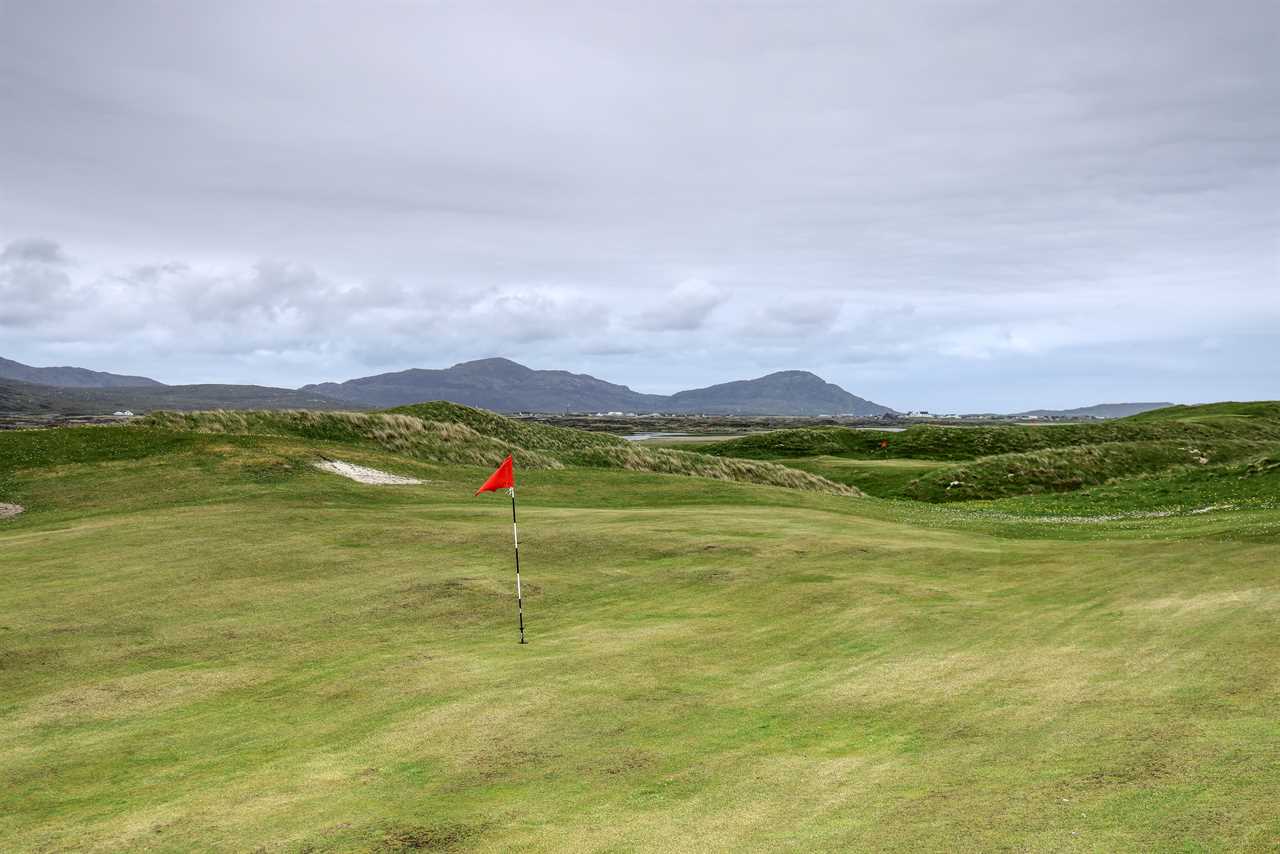
Askernish Golf Club is as wild and natural as golf can be
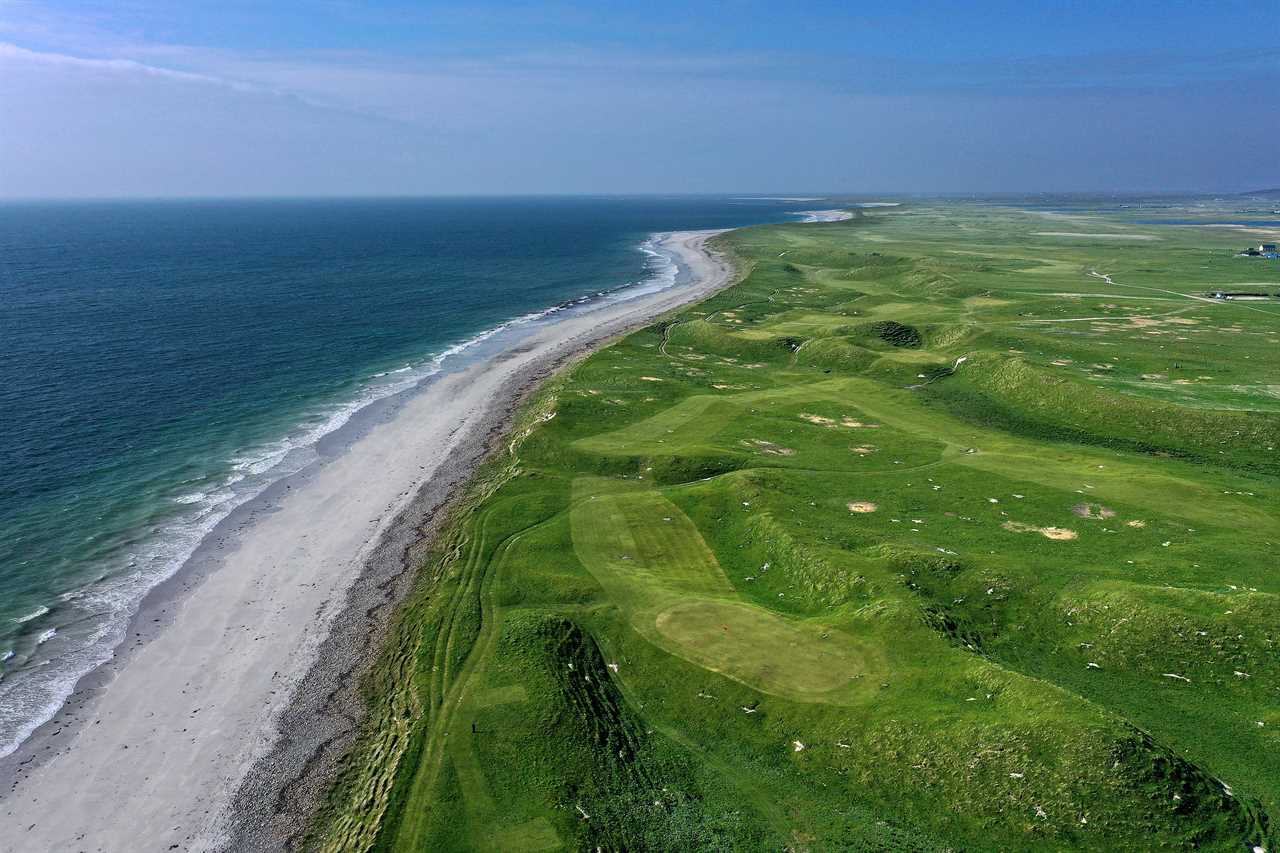
It lies on the island of South Uist in the Outer Hebrides
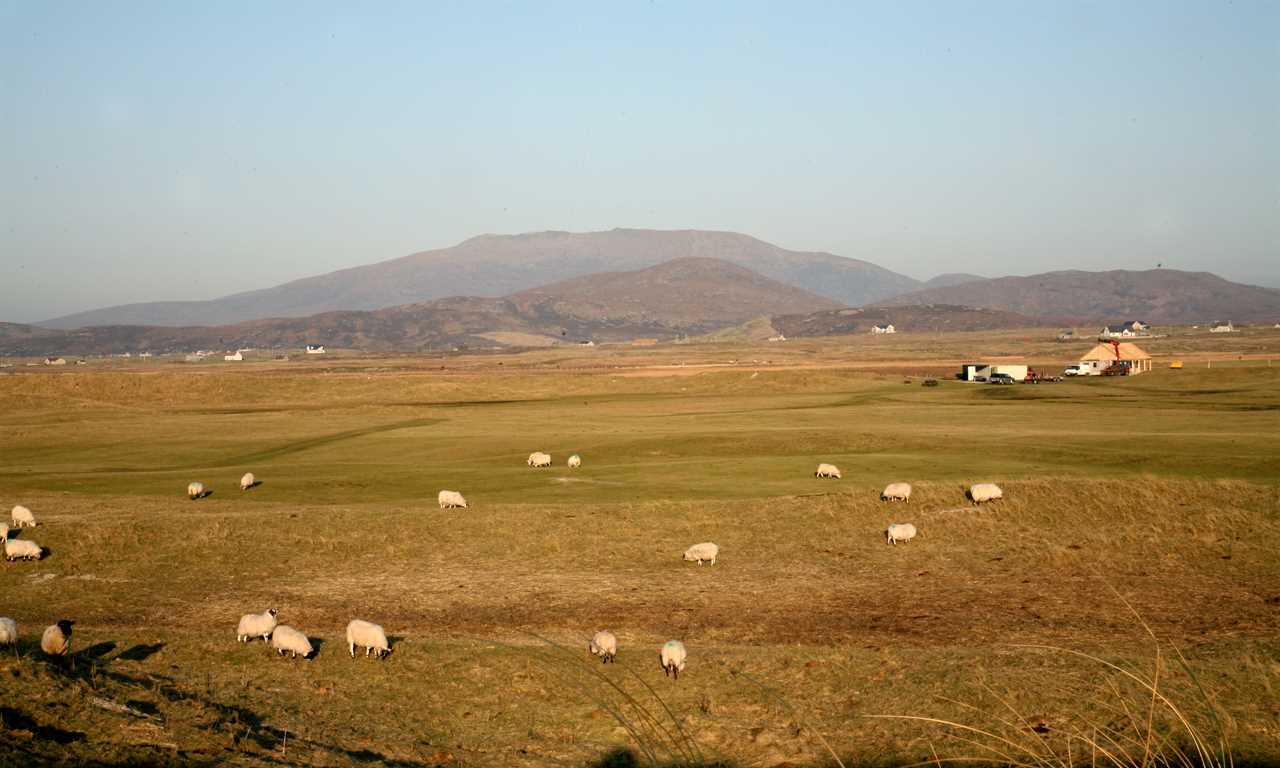
Livestock are still allowed to graze on the course
However, the course itself was almost completely lost to history as the land the holes were laid out on was reclaimed by nature and at one point turned into an AIR STRIP.
Old Tom Morris, the legendary golfer and course architect known as the Grand Old Man of Golf, travelled to South Uist in 1891 to lay out 18 holes on the fertile machair grasslands by the beach at the request of Lady Cathcart who only the land, who sought to entertain guests on the island.
Old Tom eventually settled on the rolling dunes of Askernish Farm, with views of the Atlantic Ocean and 131 years later, it’s not difficult to see why he called the land “staggering”.
However, in 1922 Askernish farm itself was adopted into crofting tenure and this, coupled with the harsh elements and weather, led to the course being left to ruin over the coming years due to lack of maintenance.
Bizarrely, the land was levelled and transformed into an airport when Scottish and Northern Airways decided to launch a regular service from Renfrew Airport to South Uist in 1936.
Nearby Benbecula Airport soon became the main hub for air traffic to the Western Isles but the damage was done.
On the other side of the island is the Lochboisdale Hotel. Simon MacKenzie was in charge of the aircraft bookings and from his office (a ten minute drive from Askernish), he sought to reclaim some of the land for golf. He planned for it to co-exist with the air strip, which by 1938 was only being used for Air Ambulance emergency landings.
After this work was completed, Askernish was now a 12-hole course but again it gradually fell into decline, with a portacabin for a clubhouse.
Askernish had somewhat a revival in the seventies when it reduced a nine-holer (with 18 tees) but by the end of the century, the course was once again in a barely playable condition and the layout was far different to the one that Old Tom had envisioned. If it wasn’t for the few remaining passionate members, it’s likely his masterpiece would have been confined to the scrapbook altogether, however.
A member of Askernish Golf Club, Alan MacDonald, told the BBC how players often dreamed of one day reclaiming land that had been forgotten with “the sands of time”.
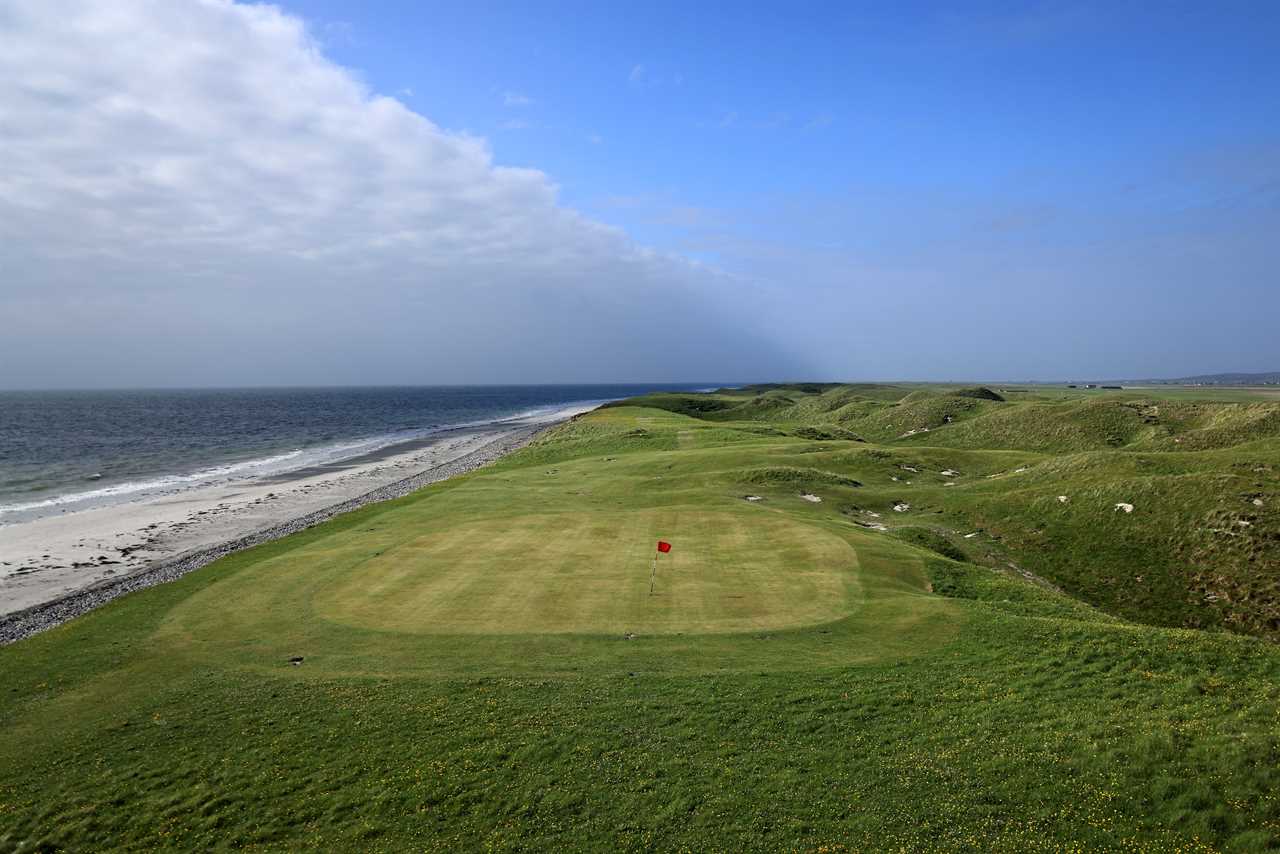
Many golfers have Askernish on their bucket list
He said: “Locally it was always known that Old Tom Morris had laid out a course.
“We knew it was an 18-hole course but through time dropped down.
“By the sixties and seventies, it was down to nine holes.
“We used to look to the south of the course and see these natural-looking fairways and just dream about one day being able to play golf there.
“It had been forgotten with the sands of time.”
Over 200 miles away in the coastal Ayrshire town of Girvan, golf course designer and agronomist Gordon Irvine heard whispers about Old Tom’s lost course in 2005.
He arrived on the island (originally he was planning a trip with his friends) and agreed to survey the land with a view to bringing the original layout back to life.
The nine remaining holes were at this point in fine playing condition, largely thanks to the maintenance work undertaken by Uist resident Colin McGregor, a retired policeman.
McGregor, now working as the club’s sole greenkeeper and Ralph Gordon, the chairman, had arranged to meet Irvine and upon being shown the land on which Old Tom’s holes used to live, he declared he had found “the holy grail”.
And so began the journey to transform Askernish and revive Old Tom’s legacy. No earth needed to be moved and the course was to be self-sustaining.
The local crofters opposed the redevelopment and took the course designers to court but a judge ruled in favour of the golfers.
Askernish 2.0 was opened for play in August 2008 and since then it has re-established itself as one of Scotland’s best places to play golf (it ranks 51st in Today’s Golfer magazine’s list of 100 best Scottish courses).
What lies before the golfer today now that Askernish been restored to its former glory are 18 holes that incorporate the humps and bumps of the natural landscape, encouraging players to be creative and wily and leave their egos behind as they navigate their way through the rugged, rolling dunes.
It’s even commonplace for the golfer to encounter sheep or cattle on the fairways during their round, with livestock still allowed to graze on the course to this day. Electric fencing has been erected to keep the animals off the greens but it’s not unheard of for a golfer’s ball to land in the hoof marks of the machair’s four-legged inhabitants. It’s a step back in time.
Last but certainly not least, the beautiful and everlasting backdrop of the Atlantic Ocean will always remind the player exactly where they are: the outermost reaches of Scotland and completely at one with nature. For all the peace and calm being away from the hustle and bustle of city life that Askernish offers, the fierce gusts from the coast can make the experience a truly wild one.
Irvine said of the restoration project in 2022: “Old Tom was famous for the fact that he didn’t build a golf course, he found a golf course.
“He would strategically find golf holes within the natural terrain so we worked with those principles very clearly.
“Golf was always in harmony with nature. It was meant to be you played within nature, you didn’t abuse it or change it.
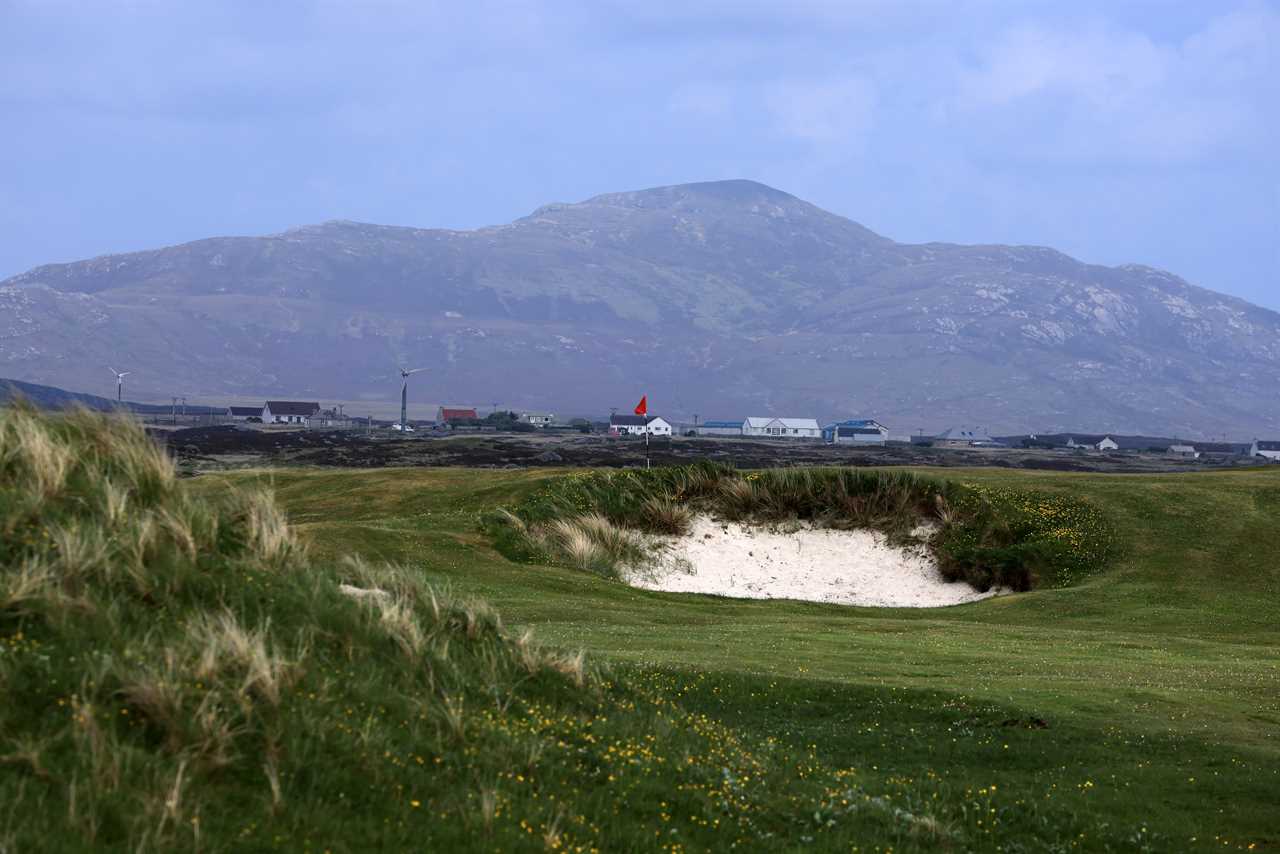
The course was originally laid out by Old Tom Morris
“We don’t use pesticides on the course which is quite unique today, which means the golfers that come here have to develop a relationship again with daisies and buttercups.
“We cut the grass as often as it needs to be cut, we don’t over present it and we certainly don’t worry about green speeds and all of these modern things.
“We just let the golfer enjoy being part of the machair.”
The Scottish Sun spoke to several golf enthusiasts who had played the course and it’s clear those who have made the pilgrimage to the machair certainly found it as special as Old Tom did.
One fan, Kenneth Walker, told us: “It’s incredible! It’s one of a handful of courses that I would keep going back to over and over again.”
John Johnstone recalled his experience of the course, labelling Askernish as a “truly magical place”.
He said: “I don’t think there’s anywhere more traditional.
“It’s tight, the rough is rough and even when you see your ball bounce, you’ll still lose it. The greens are great fun.
“Once you’re out past the first few holes and up on the dunes it becomes a truly magical place. The 11th par 3 is one of my favourite holes ever.
“Coloured balls are a must in my opinion.”
Frank Dyer said: “The place is immense, the first few holes I was thinking what the f*** is this, then you get past the cattle and it’s unbelievable.”
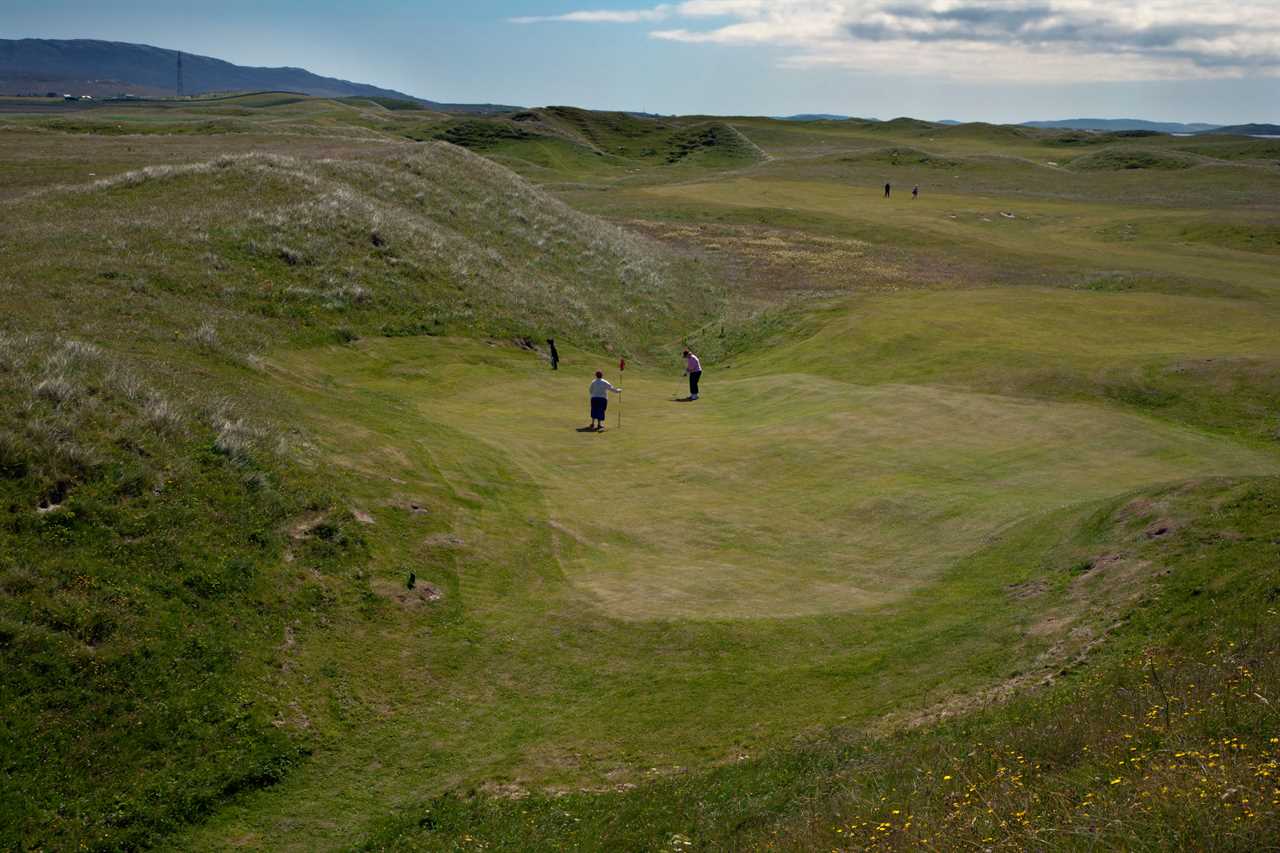
The greens are some of the most unique in golf anywhere in the world
Matthew Wheeler believes every golfer should play the course at least once in their life.
He said: “I’d recommend it to anyone.
“I played it by myself in August on a perfect day, battered bruised, lost 20-plus balls, but I wanted to go back the next day.
“I’d argue that everyone has to play this place at least once.”
Gus Gurney added: “I would rather spend £300 travelling to and playing Askernish than I would some of the so called bucket list courses.”
Michael Lowe said: “I played Lytham St Anne’s from the back tees in the wind and it was easier than Askernish.
“The rough is absolutely penal, it’s really tough. I can’t state how important it is to hit the short stuff. And if you do you have to hit the greens.
“The greens are the most unique you will ever see in your life. From six feet the ball might turn three or four ways, no joke! You have to play here to see how golf flows with nature.
“If I had a week to live I’d play here, the Old Course and North Berwick in no particular order. I actually want to move to the island to be closer to this place.”
Golfer and YouTube personality Erik Anders Lang described it simply as “the truest links course on planet Earth.”
Today’s Golfer note that Askernish can split opinion but in their review of the course from 2021, said: “As the world slowly fills up and starts to burst at the seams, eventually, these last bastions of calm, wild tranquillity and peace and beauty will be gone.
“Go there soon or regret it. Go there now.”
Keep up to date with ALL the latest news and transfers at the Scottish Sun football page
 In The RoughGolf TipsPrivacy PolicyTerms And Conditions
In The RoughGolf TipsPrivacy PolicyTerms And Conditions
